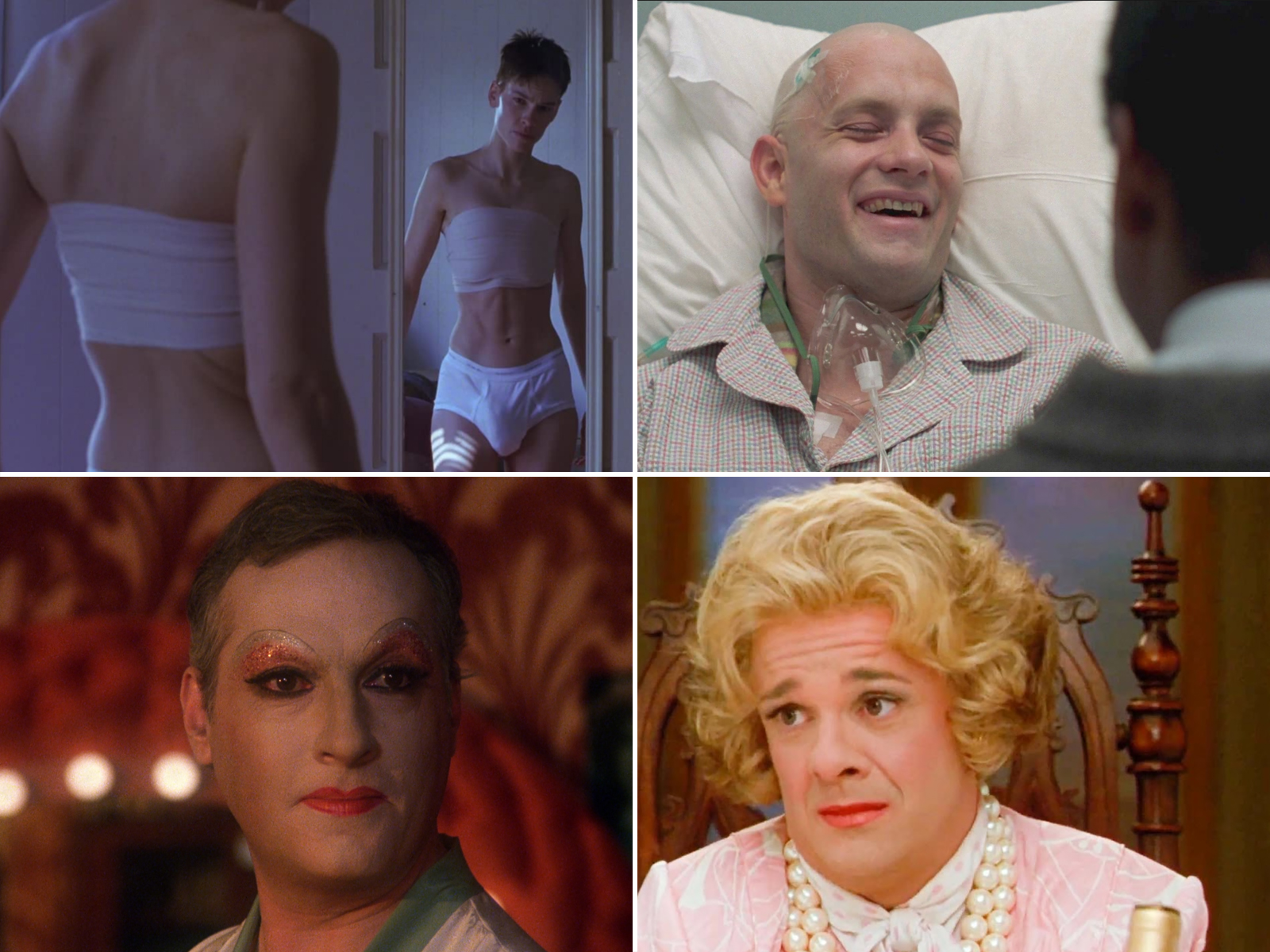
- Industry
Hollywood Earned a Right to be Proud as Well
It was a film, Boys Don’t Cry by Kimberly Peirce (1999) that dramatized a tragic real-life story of a boy in the body of a girl long before most of the population even was aware of the term “transgender”.
It was a film, Philadelphia by Jonathan Demme, (1993) that evoked deep sympathy and compassion for a loving couple of two men, one of them dying of AIDS.
It was a film, La Cage Aux Folles (1978) and its US remake The Birdcage (1996) that turned the stigma of the “Drag” culture into one of the most endurable and popular comedies in film history.
Those films have one powerful aspect in common: They helped open the eyes of a wide audience to the experiences of “the others”, the discriminated, ridiculed, despised, persecuted.
To see the tragedy of a tortured boy unfolding in front of your eyes, it has to have a lifelong impact. Especially when portrayed so convincingly by Hilary Swank, who was awarded a Golden Globe for Best Actress for her role in Boys Don’t Cry.
To have three serious, highly respected actors, Tom Hanks, Antonio Banderas and Denzel Washington, dedicating their craft to the portrayal of the intimate emotions of a homosexual unity, it must have created a lasting change on the way gay relationships were seen. Tom Hanks got a Golden Globes for his role in Philadelphia.
To witness the gay owners of a “Drag Club” faking their identity during a chaotic dinner with a moralizing right-winger who ends up in drag himself, is hilarious and disarming. No doubt possible which side wins our sympathies. Nathan Lane was nominated for a Golden Globe as Best Actor in a Comedy/Musical for The Birdcage.
These examples – a very long list with similar outcome would be possible – shed a positive light on the often-defamed Hollywood: On the occasion of the LGBTQ+ Pride Month it is worth noting that Hollywood, and with it the entertainment industry at large, has the right to be proud as well.
No other cultural, political, societal entity has done more for the acceptance and welcoming of fellow human beings with deeply personal sexual or gender identities that differ from the majority.
Is this statement typical Hollywood hype?
In May 2020, the National Library of Medicine published an analysis in Behavioral Science, titled “Impact of Films: Changes in Young People’s Attitude After Watching a Movie” (abridged): “Movies can have a significant impact on gender stereotypes. They can change attitudes towards certain groups of people and cause newly formed opinions on various issues. For example, HIV films contributed to sympathy to people living with HIV. TV series with transgender characters contributed to positive attitudes towards transgender persons and watching a movie offering a positive depiction of gay men reduced homophobia”.
One of the most memorable quotes from a LGBTQ themed film is by Eddie Redmayne in his role as a man with an insuppressible longing to be transformed into his/her true gender: “God made me a woman but the doctor corrected the mistake that nature made” (The Danish Girl, 2015).
TV series, according to the analysis in Behavioral Science, have similar effects: “A series with transgender characters contributed to positive attitudes towards transgender persons”.
What was mostly shunned in the past and unthinkable just a decade ago is today common fare on the small screen. The L Word: Generation Q (Showtime), Schitt’s Creek (Netflix), We’re Here (HBO), Queer as Folk (Amazon), Heartstopper (Netflix) are just a handful of titles out of hundreds of current and upcoming series featuring prominently the triumphs and tribulations of LGBTQ characters.
One can assume that depictions like this are even more effective if they are connected to celebrated and idolized performers: If my favorite star is accepting the role of a LGBTQ character, so a possible response of a movie fan, then I’m willing to accept that character as well: Such as
- Leonardo DiCaprio playing the young poet Arthur Rimbaud in a passionate affair with the older Poet Paul Verlaine in Total Eclipse (1995).
- Philip Seymour Hoffman as a drag performer in Flawless (1999) or in his spectacular portrayal of novelist Truman Capote in Capote (2005).
- Sean Penn in the role as Harvey Milk, San Francisco’s first openly gay elected official, in Milk (2008).
- Matt Damon and Michael Douglas in the Steven Soderbergh film Behind the Candelabra (2013), a dramatization of showman Liberace’s relationship with his lover.
- Cate Blanchett and Rooney Mara as women whose attraction to each other are not allowed by the moral codes of their time in Carol (2015).
- Timothée Chalamet as a seventeen-year-old drawn to an older, glorified version of himself played by Armie Hammer in Call Me by My Name (2017)
Since entertainers once belonged also to the outcasts of society, their readiness to embrace discriminated groups is not surprising. The unsettled, nomadic troops of the circus, carnival and Vaudeville crowds were uncivilized folks in the eyes of the god-fearing citizenry. An old, often-quoted sign at the entrance of a Los Angeles golf club read: “No dogs and actors allowed”.
To this day, even in a radically changed industry, those roots are still apparent: In a greater willingness to permeate outdated walls of prejudices and stereotypes. And in the undying attraction it has for people who seek to participate in exactly that.
In To Be or Not To Be (1983), this is brought to a point as only Mel Brooks can as he pleads for “undesirables” in a time of insufferable intolerance: On a Berlin stage, he declares in the face of a Nazi audience: “Without gypsies, Jews and homosexuals, there would be no theater”.